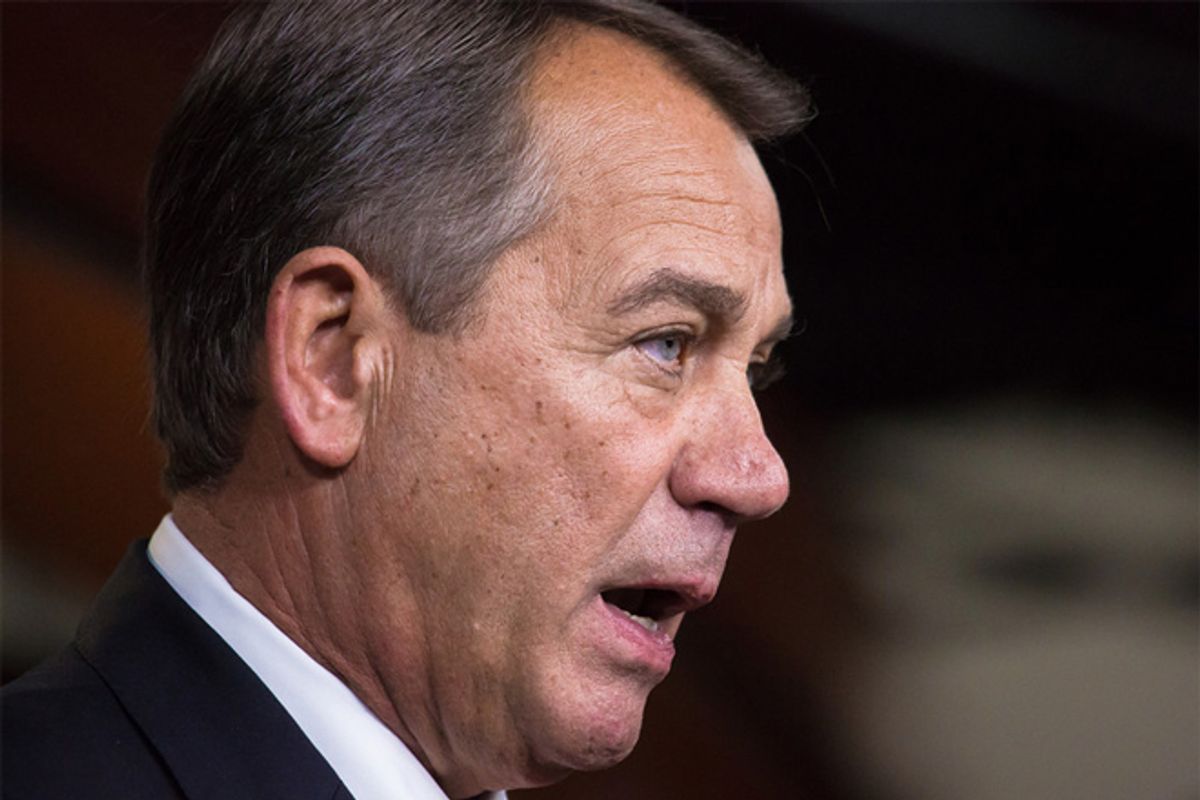 After weeks of negotiating, we have a deal on the fiscal cliff, which — in true, congressional fashion — passed hours after the government went “over” the cliff.
After weeks of negotiating, we have a deal on the fiscal cliff, which — in true, congressional fashion — passed hours after the government went “over” the cliff.
The details of the deal are straightforward: Tax rates will rise permanently to Clinton-era levels for families with income over $450,000 and individuals with income over $400,000. For everyone below that ceiling, taxes will remain at Bush-era levels. Likewise, for families and individuals at that income threshold, the taxes on capital gains will rise to 20 percent, while staying at 15 percent for everyone else. Given the financial situation of most Americans — who don’t earn much, if anything, from investments — this is a good move, considering the circumstances.
Estate taxes will rise to 40 percent, but Republicans were able to win a key concession — estates up to $5 million are exempt from the tax, which amounts to a large tax giveaway for a small number of wealthy families. The deal also reinstated the phase-out of personal exemptions, with a starting income threshold for those making $250,000. And, in a move that guarantees a repeat performance of this fight, the automatic spending cuts to all federal spending — i.e., the sequester — will be delayed for two months.
On the whole, this was a huge compromise on the tax goals President Obama outlined at the beginning of last month. In return, however, he received a fair amount of funding for anti-poverity and stimulus programs. The expansion of tax credits for lower-income Americans — initially paid for by the American Recovery and Reinvestment Act — will be extended for five years. This includes the Earned Income Tax Credit, the Child Tax Credit (originally pioneered by Republicans in the 1990s), and the American Opportunity Tax Credit. Unemployment insurance will be extended for another year (without any offsets to the $30 billion price tag), as will the full package of temporary business tax breaks.
Unfortunately, the most important stimulus program of the last two years — the payroll tax cut — will expire, without any replacement. In practical terms, this means that the average American will see their paycheck reduced by $1,000, with the burden falling hardest on working Americans, who see most — if not all — of their income hit by the payroll tax, which only applies to the first $110,100 of earnings.
It’s obvious why liberals are unhappy with this deal. On tax rates, Obama made huge concessions to the GOP; this agreement is slated to raise just $600 billion over the next 10 years, far less than half of what he originally asked for. He also gave up most of the stimulus present in his original offer, leaving a deal that does little to actively reduce unemployment. Indeed, if the fiscal cliff was a bunker buster of austerity, then this agreement swaps it for a standard-issue missile — either way, a large part of Washington has decided that now is the time for fiscal retrenchment.
If there’s a critical omission from this agreement — one that guarantees another crisis — it’s the lack of any deal on the debt ceiling. As was the case in 2011, Republicans will be free to use this routine administrative function as leverage for large cuts to popular (and, for the most part, well-run) programs like Medicare, Social Security and Medicaid. And with a demonstrated willingness to crash the global economy, odds are good that they will succeed.
Which gets us to the most important takeaway of this entire saga.
The Republican Party is the problem.
President Obama isn’t perfect — he’s a mediocre negotiator, with a penchant for giving away too much. But he’s dealing with a group of fanatical, rabidly anti-government conservatives, who — over the last two years — have threatened to shut down the government, crash the global economy, and induce a second recession in order to lower taxes on the rich and slash spending on a collection of the nation’s most vulnerable citizens.
Judging from the various conservative revolts over the last two weeks, in which House Republicans rejected a conservative plan to deal with the fiscal cliff — “Plan B” — and almost scuttled yesterday’s deal (which was saved by substantial Democratic support), the president holds little leverage, if any, over the GOP. Pace common belief, automatic tax increases on the wealthy aren’t enough to induce a little sanity from congressional Republicans. There’s nothing Obama — or any Democrat — can do to mitigate the policy nihilism of right-wing conservatives in the House.
And so we should expect more of it. Not the least because these same Republicans also won reelection in 2012, in districts that also voted to elect Mitt Romney president. They have no incentive to cooperate, and with the debt ceiling on the horizon, a new opportunity to force crisis.

Shares